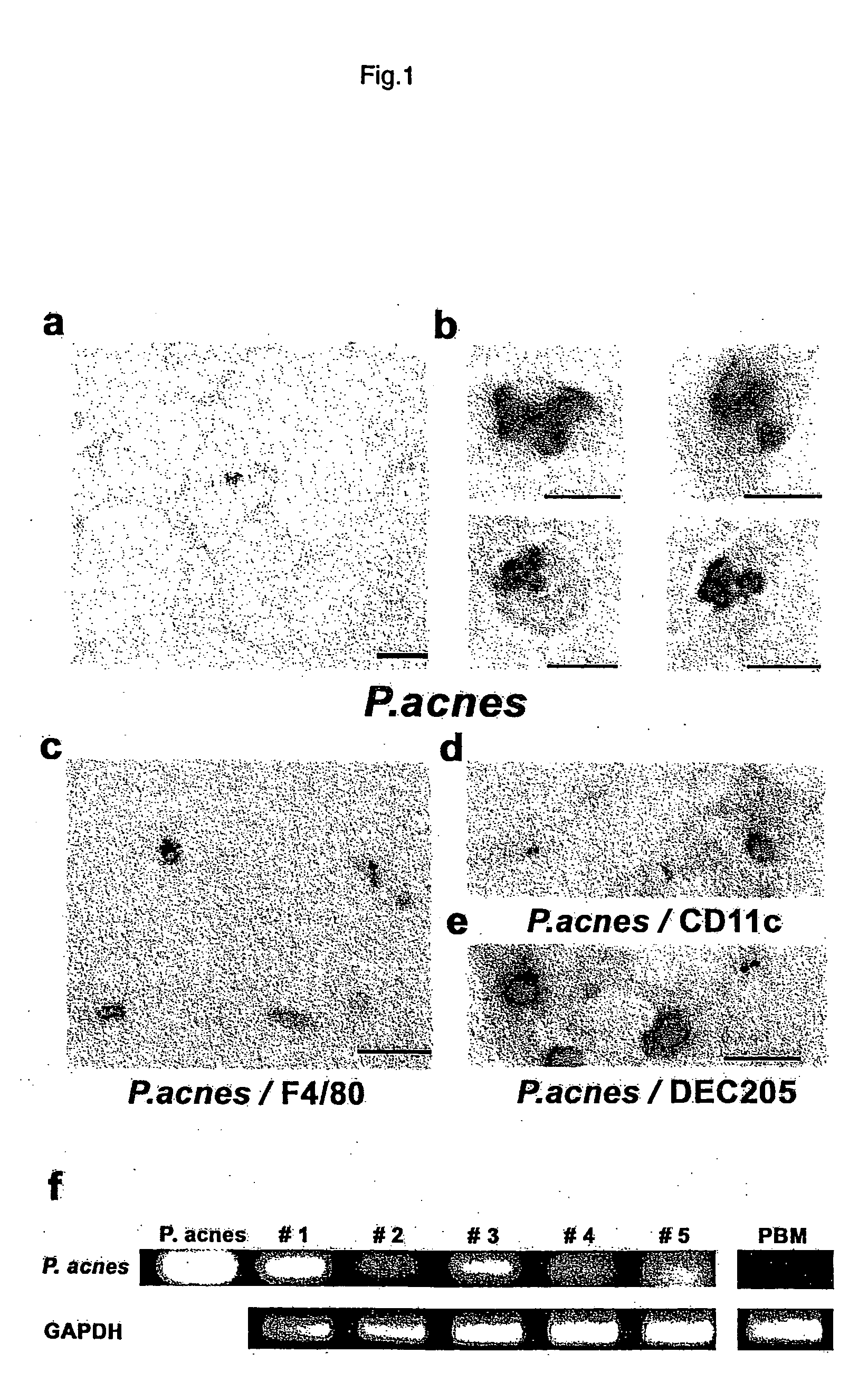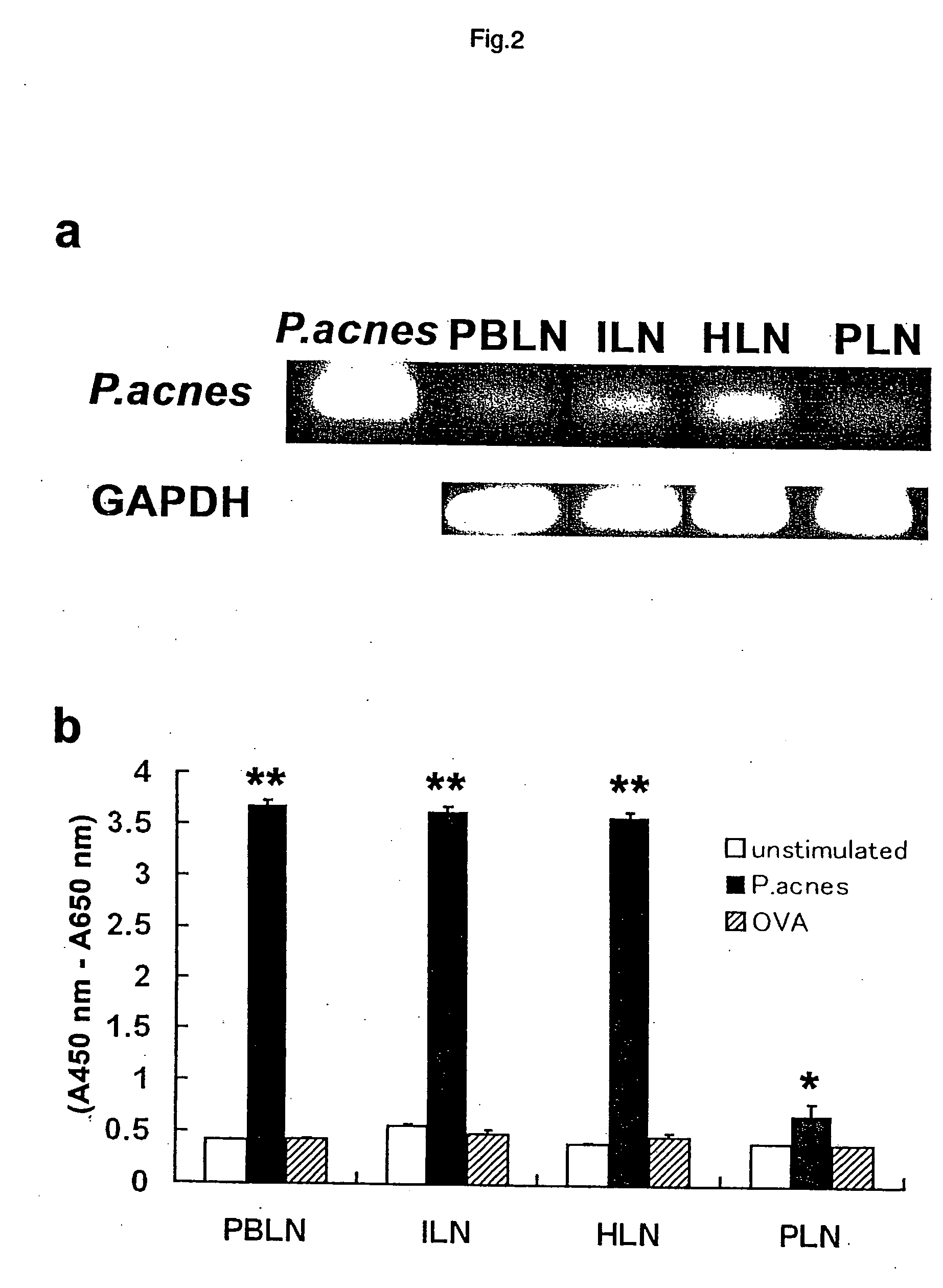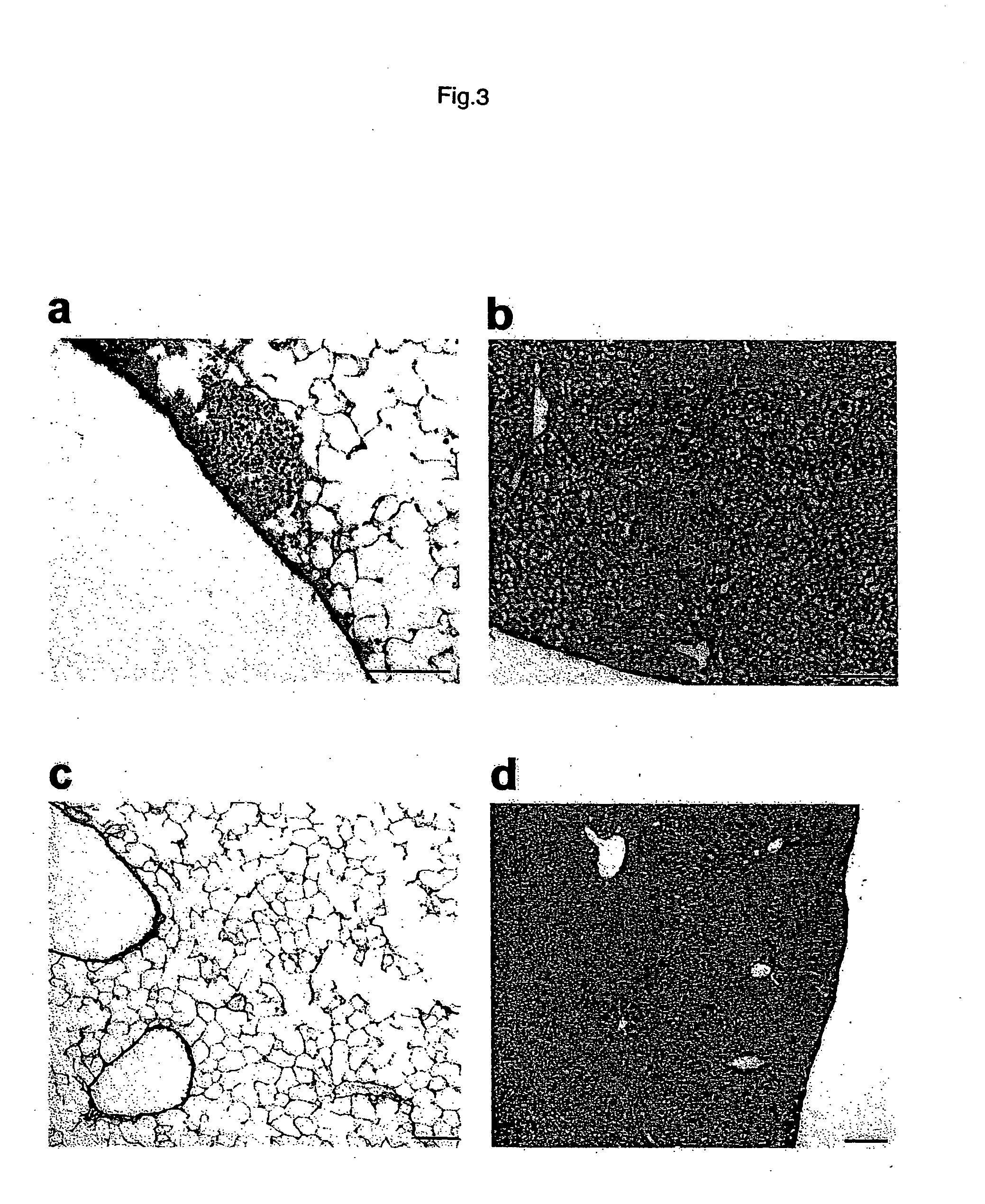Remedy for sarcoidosis and method of treating the same
a sarcoidosis and treatment method technology, applied in the field of sarcoidosis treatment, can solve the problems of poor prognosis, unsuitable clinical pulmonary studies for long-term antigen deposition at the pulmonary interstitium, irreversible fibrotic changes, etc., and achieve the effect of suppressing granuloma formation
- Summary
- Abstract
- Description
- Claims
- Application Information
AI Technical Summary
Benefits of technology
Problems solved by technology
Method used
Image
Examples
example 1
[0032] The present invention is described below more specifically with reference to Examples, however, the technical scope of the present invention is not limited to these exemplification.
(Results)
[Existence of P. acnes in the Alveoli of the Healthy Mouse Lung]
[0033] When there is a preexisting immune response to P. acnes, it must be possible to detect P. acnes in the healthy lung. Therefore, the present inventors performed immunohistochemical analysis to examine the existence of P. acnes on fresh frozen lung sections collected from healthy C57BL / 6 mice. Images of P. acnes-positive staining, wherein two to five round granules assembled, were observed. All of them were phagocytized by lung cells, most of which were adjacent to alveoli (FIGS. 1a, b). Double immunostaining revealed that P. acnes-positive cells express a known macropharge marker, F4 / 80 (FIG. 1c), but not markers for dentritic cells such as CD11c (FIG. 1d) or DEC205 (FIG. 1e) (Blood. 95, 138-146, 2000, J. Immunol. 16...
example 2
(Discussion)
[0043] Though living organisms are constantly exposed to foreign antigens, it has been considered that the lower airway of the lung is an inviolable germ-free space, and that entry of pathogens into the lung causes pulmonary disorders. Based on this assumption, animal models for pulmonary disorders were constructed by forced administration of antigens via the trachea, nasal cavity, or antigen-embolized pulmonary vessels (Am. J. Pathol. 158, 1503-1515, 2001; J. Immunol. 166, 3423-3439, 2001; Nature. 392, 245-252, 1998; Immunology. 108, 352-364, 2003). However, clinicians are often confronted with cryptogenic pulmonary disorders without evident exposure to pathogens, in particular, interstitial pulmonary disorders. Accordingly, the present inventors hypothesized that there may be an indigenous organism in the healthy lung that can act as a pathogen under certain conditions.
[0044]P. acnes distributes on the skin and mucosal surface of healthy individuals, acts as a patho...
example 3
(Materials and Methods)
[Mice]
[0048] Female C57BL / 6J mice of 5 to 7 weeks of age were obtained from CLEA Japan (Shizuoka, Japan) or Japan SLC, Inc. (Tokyo, Japan), and kept under specific pathogen-free (SPF) conditions in the animal facility of the Department of Molecular Preventive Medicine, Graduated School of Medicine, the University of Tokyo. All animal experiments were conducted in accordance with the guidelines of the University of Tokyo.
[0049] The following anti-mouse monoclonal antibodies (mAbs) were used. CD4 (clone; RM4-5), biotinylated IFN-γ (XMG1.2), biotinylated IL-4 (BVD6-24G2), all from BD Pharmingen (San Diego, Calif.); biotinylated F4 / 80 (CI:A3-1), CD11c (N418), both from Serotec (Oxford, UK); DEC-205 (NLDC-145; BMA Biomedical, Augst, Switzerland); and mouse mAb to P. acnes recognizing lipoteichoic acid of the plasma membrane (J. Exp. Med. 193, 35-49, 2001).
[0050] As secondary antibodies, alkaline phosphatase-labeled anti-rat IgG antibody (Jacks...
PUM
 Login to View More
Login to View More Abstract
Description
Claims
Application Information
 Login to View More
Login to View More - R&D
- Intellectual Property
- Life Sciences
- Materials
- Tech Scout
- Unparalleled Data Quality
- Higher Quality Content
- 60% Fewer Hallucinations
Browse by: Latest US Patents, China's latest patents, Technical Efficacy Thesaurus, Application Domain, Technology Topic, Popular Technical Reports.
© 2025 PatSnap. All rights reserved.Legal|Privacy policy|Modern Slavery Act Transparency Statement|Sitemap|About US| Contact US: help@patsnap.com



